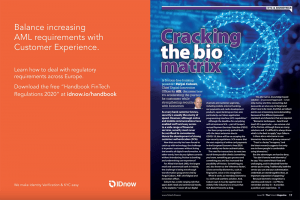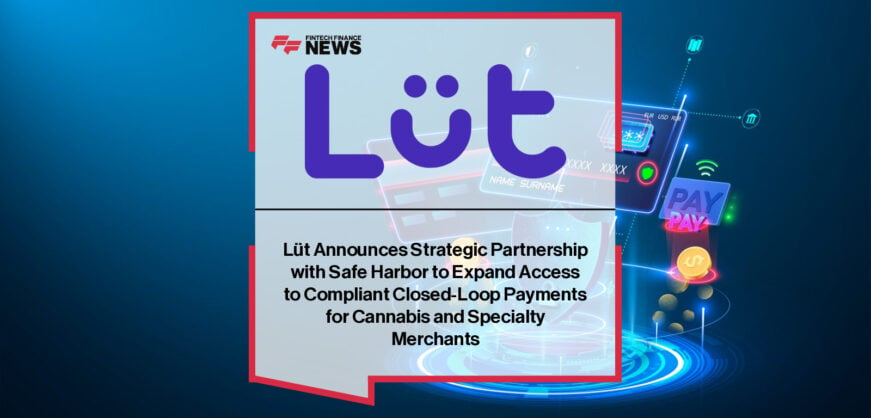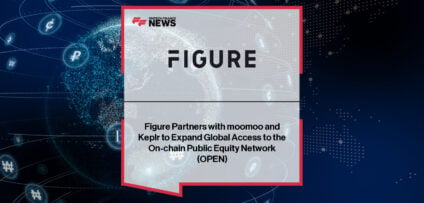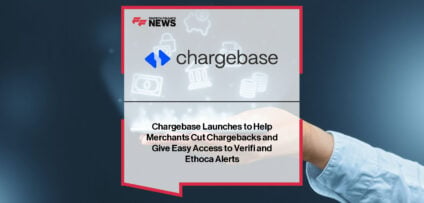Breaking News

Exclusive: ‘Cracking the bio matrix’ – Fergal Coburn, AIB in “The Fintech Magazine”
Is friction-free banking possible? Fergal Coburn, Chief Digital Innovation Officer for AIB, discusses how it’s accelerating the journey for customers while strengthening security with biometrics. 
As every bank customer knows, security is usually the enemy of speed. However, although online and mobile communications have enabled swift and easy access to a wide range of financial services, security must never be sacrificed to convenience. Hence the development of strong customer authentication (SCA).
Now that security has been forced to catch up with technology, the challenge is to protect customers without losing the benefits of digital transformation. In other words, how do you tighten controls without introducing friction to banking and undermining user experience?
For Allied Irish Bank (AIB), the largest retail and commercial bank in Ireland, the challenge is being met through transformation programmes led by Fergal Coburn, AIB’s chief digital and innovation officer.
Coburn has a wide-ranging role that spans both retail and commercial needs. As he explains: “I cover all our digital channels and customer segments, including mobile, internet banking, our payments and cards development products, open banking services and, particularly, our future application programming interface (API) capabilities.”
Although the deadline for complying with eCommerce SCA – part of Europe’s revised Payment Services Directive (PSD2) – has been progressively pushed back, with the latest extension due to COVID-19, there will be no escaping the new security regulations. SCA means that the vast majority of online card payments in the European Economic Area (EEA) must satisfy two factor authentication.
The need for transactions to meet two out of three possible checks (something you know, something you possess and something you are) has increased the possibility of friction. ‘Something you are’, also known as the ‘inherence factor’, is best served by biometrics, such as fingerprint, voice or iris recognition.
When it works as intended, biometrics is a swift and seamless solution. And, Coburn says it must be applied more widely if the industry is to ensure that SCA doesn’t become a drag.
The alternative, knowledge-based solution – or password approach – is not only clumsy and time-consuming, but passwords are also easy to forget and often have to be reset. And that, as Coburn points out, is becoming more demanding because of the different password standards and characters that are required.
“Biometric techniques – face ID and touch ID in particular – can remove a lot of the friction, although there are many solutions and it’s difficult to always know which is the best to apply,” says Coburn.
Is there also a reluctance to use biometrics because of privacy concerns?
“Trust is a factor,” he agrees, “and the latest research suggests that only one in three people is comfortable using biometrics.”
But the advantages are hard to deny.
“You don’t have to reset biometrics,” he says. “It’s a control that’s fixed and unchanging, and it’s detached from the service you’re using. Traditionally, both the service you use and your authentication credentials are stored together. Now, an important separation is happening.”

Because biometric recognition is seamless and instant – no PINs to remember and key in – it provides
a positive user experience.
AIB is pursuing a number of biometric initiatives. One is in relation to its mobile app, which has almost 30 million logins per month, with about 13 per cent of those coming through a biometric-authenticated device. Coburn says this is bound to grow, since more devices now include face or touch ID, which is particularly helpful for SCA. The bank has also implemented voice authentication.
“We’re the first company in Ireland – in any industry, not just banking – to implement voice ID,” says Coburn. “In the past year, 200,000 of our customers have enrolled for this service. If you phone AIB, your voice is identified and you have immediate engagement with our staff. It removes 20 or 30 seconds from a call – the frictional bit that has no value for customers and is a chore.”
Coburn says that AIB’s biometric solutions, particularly voice authentication, have not led to an increase in fraud, which also means it’s helping to build trust among customers. The bank plans to extend voice authentication into AIB’s mobile app, to open up the service and make it more seamless and user-friendly. Customers will be prompted to say a phrase, which will be authenticated and allow immediate access.
Coburn believes it is possible to balance security with speed and accessibility, and still meet customer expectations for convenience. But design is critical, he says.
“You achieve the right balance by looking closely at the customer journey, retrofitting security checks where they’re essential, and making them intuitive. If the balance is wrong, there’ll be low take-up, lack of trust and frustration. People will revert to what’s familiar and trusted, such as passwords.”
AIB works with third-party experts to ensure that doesn’t happen. It used German company IDnow, an artificial intelligence (AI) powered ID verification specialist, to develop its mobile service. IDnow has built security across hundreds of institutions, says Coburn, and acts as a ‘huge accelerator’ for the bank.
“IDnow is a partner that understands this technology space,” he adds. “That gives us a platform to develop biometrics, with customers logging in to AIB via face or voice recognition and benefiting from video calls. There may be a little friction, but it’s better than having to go to a branch.
“Moreover, as near-field communication (NFC) develops, we’re going to be matching face IDs with information stored in digital passports, which will remove a whole load of friction around onboarding but still be able to apply robust security.”
It opens up the possibility of banks adding a whole new revenue stream: as identity-as-a-service (IDaaS) providers.
![]()
“As a bank that probably nearly half the population of Ireland now uses and accesses, it gives us a huge opportunity to add value to our customers by being an identity provider for them,” says Coburn. “Things like IDaaS are really strong value-add services banks can begin to offer their customers, particularly banks with a large share in their home market, where they have a significant cohort of the population. Becoming their trusted partner for identity is another sticky factor and reason why customers shouldn’t want to leave you.”
For now, the goal is to remove friction at every point where the bank interacts with a customer, be it when talking with a member of the bank’s staff or using a digital channel.
“Take our mobile banking app,” says Coburn. “It’s almost seamless if you have face ID. That’s what we expect from biometric verification. We want a versatile and secure tool that allows you to verify your identity, whatever the circumstances.
“Say you’re an AIB customer and you’ve lost your card. A Google search will take you directly to a feature that will freeze the card for you. If you have a biometric phone, you can instantly activate that service. In future, all our banking services, such as resetting PINs, freezing cards, taking out personal loans and doing fund transfers, will be done seamlessly and securely with help from biometrics.”
No one left behind
As technology advances, Coburn acknowledges there is a danger that some people, particularly the elderly, will become ‘disenfranchised’ because they are not comfortable with the user interface. For these more vulnerable customers he says AIB will soon be introducing a range of specific solutions.
Looking ahead, he sees a convergence of standards such as FIDO2 and OpenID Connect as being vital for the widespread adoption of biometrics. Equally, he believes large Cloud providers will make AI accessible to companies and service providers worldwide, helping to build biometrics and other advanced ID solutions faster. However, trust and privacy are still issues, particularly in Europe, which will mean slower adoption compared to other parts of the world.
That major banks will have to work harder to attract and keep customers is undeniable: some have lost thousands during an unprecedented period of demand for digital services. AIB fared relatively well in that regard, compared to many others during the crisis: maybe Coburn’s ‘sticky’ strategy is working.
This article was published in The Fintech Magazine: Issue #18, Page 17-18
People In This Post
Companies In This Post
- Lüt Announces Strategic Partnership with Safe Harbor to Expand Access to Compliant Closed-Loop Payments for Cannabis and Specialty Merchants Read more
- Figure Partners with moomoo and Keplr to Expand Global Access to the On-chain Public Equity Network (OPEN) Read more
- OneDome Raises $25M Pre-Series C, Bringing Total Funding to $40M Read more
- intelliflo and Söderberg & Partners Form Strategic Partnership to Drive Adviser Efficiency Read more
- Axiology Secures €5 Million Seed Funding to Accelerate the Modernisation of Europe’s Capital Markets Read more




















